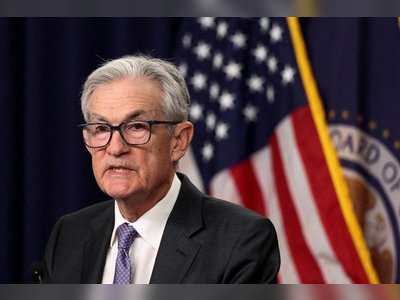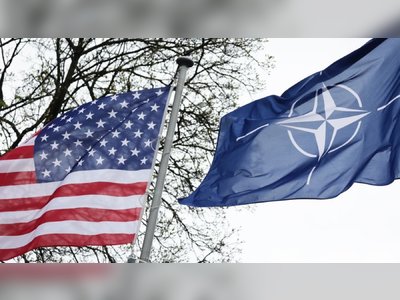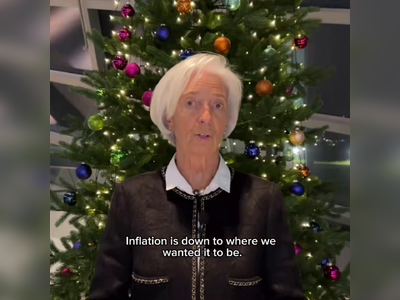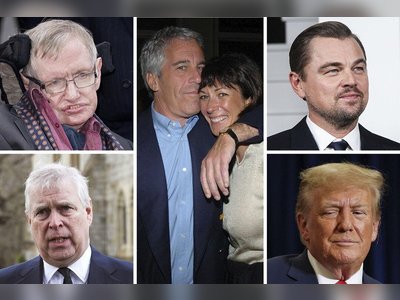Global Markets Plummet Amid Rising U.S. Tariffs and Trade Tensions
Asian and European indices face significant declines as President Trump maintains his stance on new tariffs.
On April 7, 2025, global financial markets reacted sharply following the announcement of new tariffs imposed by U.S. President Donald Trump.
Asian markets experienced substantial declines, mirroring the negative trend seen on Wall Street, which closed the previous week with its worst performance since 2020. The Hang Seng Index in Hong Kong dropped more than 12%, marking its most significant loss since the 2008 financial crisis.
Other major Asian indices, including those in Tokyo, Shanghai, and Seoul, also recorded steep declines.
As concerns escalated, European markets were projected to open sharply lower on April 7, with crude oil prices hitting near four-year lows.
In response to the market turmoil, President Trump defended his trade policies, stating that sometimes it was necessary to take “a treatment to heal.” He expressed confidence in the U.S. economy, claiming that it had become “much stronger” following the announcement of tariffs and dismissed the market declines as unintentional.
The newly implemented tariffs include a universal 10% duty on all imported goods entering the United States, effective April 6. Further increases are scheduled for several major trading partners including the European Union and China, with proposed tariffs of 20% and 34% respectively.
Trump's administration cited a long-standing grievance of trade imbalances, accusing various global partners of economic exploitation.
In retaliation, China announced its own set of tariffs on U.S. imports.
The Chinese government indicated that a 34% duty on American products aimed to compel the United States to reconsider its trade stance.
Chinese officials emphasized their commitment to remaining a secure destination for foreign investments despite the escalating trade tensions.
In a statement via social media, President Trump reiterated his belief that the resolution of trade deficits with China, the EU, and other nations can only be achieved through tariffs, which he claimed would generate substantial revenue for the U.S.
As the situation develops, many countries are actively seeking exemptions from the tariffs.
Trump noted that a multitude of nations—including several from Europe and Asia—had approached his administration to discuss potential agreements to mitigate the impact of the new trade measures.
U.S. Treasury Secretary Scott Bessent mentioned that over 50 countries have inquired about reductions in trade barriers and tariff rates.
European leaders have increased diplomatic engagements in response to the U.S. tariff imposition.
A meeting of EU trade ministers is set to take place in Luxembourg to formulate a coordinated response to the measures promulgated by the U.S. government.
The United Kingdom's Prime Minister Keir Starmer articulated the significant upheaval in global trade dynamics, stating that “the world as we knew it has vanished.” Concurrently, Israeli Prime Minister Benjamin Netanyahu is scheduled to meet with Trump to discuss the anticipated 17% tariffs the U.S. plans to impose on Israeli goods.
Vietnam's leadership has requested a 45-day delay before a proposed 46% tariff on its exports to the U.S. comes into effect, seeking time for negotiations.
U.S. officials have indicated that these tariffs may remain in effect for several months, with negotiations expected to be complex and protracted.
Economic analysts project that the tariffs could lead to increased inflation and constraints on consumer spending in the U.S., despite assertions from the White House that the impact on American consumers would not be substantial.
Asian markets experienced substantial declines, mirroring the negative trend seen on Wall Street, which closed the previous week with its worst performance since 2020. The Hang Seng Index in Hong Kong dropped more than 12%, marking its most significant loss since the 2008 financial crisis.
Other major Asian indices, including those in Tokyo, Shanghai, and Seoul, also recorded steep declines.
As concerns escalated, European markets were projected to open sharply lower on April 7, with crude oil prices hitting near four-year lows.
In response to the market turmoil, President Trump defended his trade policies, stating that sometimes it was necessary to take “a treatment to heal.” He expressed confidence in the U.S. economy, claiming that it had become “much stronger” following the announcement of tariffs and dismissed the market declines as unintentional.
The newly implemented tariffs include a universal 10% duty on all imported goods entering the United States, effective April 6. Further increases are scheduled for several major trading partners including the European Union and China, with proposed tariffs of 20% and 34% respectively.
Trump's administration cited a long-standing grievance of trade imbalances, accusing various global partners of economic exploitation.
In retaliation, China announced its own set of tariffs on U.S. imports.
The Chinese government indicated that a 34% duty on American products aimed to compel the United States to reconsider its trade stance.
Chinese officials emphasized their commitment to remaining a secure destination for foreign investments despite the escalating trade tensions.
In a statement via social media, President Trump reiterated his belief that the resolution of trade deficits with China, the EU, and other nations can only be achieved through tariffs, which he claimed would generate substantial revenue for the U.S.
As the situation develops, many countries are actively seeking exemptions from the tariffs.
Trump noted that a multitude of nations—including several from Europe and Asia—had approached his administration to discuss potential agreements to mitigate the impact of the new trade measures.
U.S. Treasury Secretary Scott Bessent mentioned that over 50 countries have inquired about reductions in trade barriers and tariff rates.
European leaders have increased diplomatic engagements in response to the U.S. tariff imposition.
A meeting of EU trade ministers is set to take place in Luxembourg to formulate a coordinated response to the measures promulgated by the U.S. government.
The United Kingdom's Prime Minister Keir Starmer articulated the significant upheaval in global trade dynamics, stating that “the world as we knew it has vanished.” Concurrently, Israeli Prime Minister Benjamin Netanyahu is scheduled to meet with Trump to discuss the anticipated 17% tariffs the U.S. plans to impose on Israeli goods.
Vietnam's leadership has requested a 45-day delay before a proposed 46% tariff on its exports to the U.S. comes into effect, seeking time for negotiations.
U.S. officials have indicated that these tariffs may remain in effect for several months, with negotiations expected to be complex and protracted.
Economic analysts project that the tariffs could lead to increased inflation and constraints on consumer spending in the U.S., despite assertions from the White House that the impact on American consumers would not be substantial.











